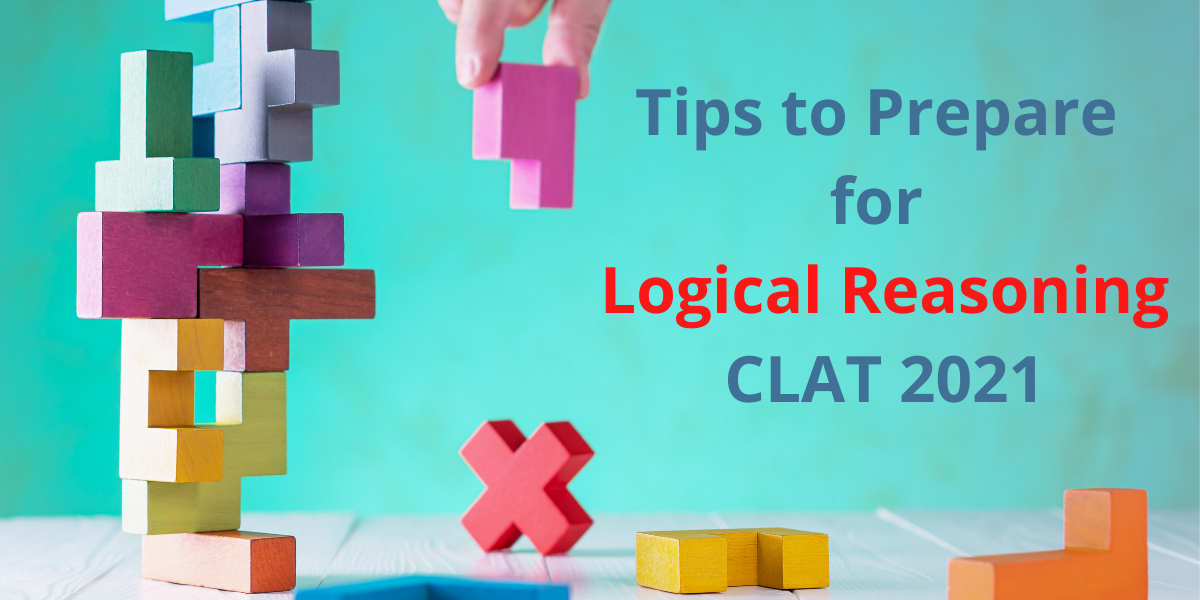
CLAT is the most prestigious law entrance exam in India. All the law aspirants look forward to sitting in this exam to start their legal career. It is a national level examination which is conducted by the consortium of NLUs. This body is responsible for devising the syllabus of the examination.
There are five sections in CLAT exam paper, which are English, Current Affairs, including General Knowledge, Legal Reasoning, Logical Reasoning, and Quantitative Techniques. One subject that always troubles the students and is the reason for the lingering stress in Logical Reasoning. Logical Reasoning is a part of many entrance exam curriculum and is not exclusive to CLAT. However, this section requires special attention as it could help you in increasing your total marks in the exam, thereby boosting your AIR.
In this article, we will discuss some tips and tricks which will help you in attempting the Logical Reasoning Section of CLAT 2022.
Before we begin discussing the tips to attempt the Logical Reasoning Section, you must be aware of its syllabus. The Logical Reasoning Syllabus for CLAT 2022, as per the website of the official conducting authority is given below:
CLAT Logical Reasoning Syllabus
The Logical Reasoning section of the UG-CLAT 2022 will include a series of short passages of about 300 words each. Each passage will be followed by one or more questions that will require you to:
- Recognize an argument, its premises and conclusions;
- Read and identify the arguments set out in the passage;
- Critically analyze patterns of Reasoning, and assess how conclusions may depend on particular premises or evidence;
- Infer what follows from the passage and apply these inferences to new situations;
- Draw relationships and analogies, identify contradictions and equivalence and assess the effectiveness of arguments.
Tips for doing well in the Logical Reasoning Section
- Solve past ten years question papers of CLAT
Solving the question papers of previous years will give you an idea regarding what type of questions get asked in the examination. It will help you in being mentally prepared for the paper. It will also help you in developing your own concepts and tricks to solve such questions.
- Apply logic and tricks
You can solve many complex and lengthy Logical Reasoning Questions easily by using small formulas. These formulas can be very helpful as they save a lot of time which you can further use for solving the other questions. A teacher or a mentor can help you with such formulas to solve different types of LR questions.
- Answer from the passage not from outside
As the name suggests, this section analyses your ability to use logic to solve a particular situation. The candidates should remember that they must answer the questions from the given passage only irrespective of its relevance to the real world. The answers must be solely based on the passages. For example, if the statement says 3+3=9, consider it true (even though it is not) and apply logic accordingly.
- Learn Time Management
Time Management is imperative when it comes to the LR section. Candidates tend to consume most of their time in the first few questions and have no time left for the other questions in the end. To avoid this, assign time duration to each section and each question if possible and do not give more than the set time to that particular segment.

- Practice Regularly
Regular Practice is the last and the most important point that all the candidates must consider. Practising for the LR section helps you in being prepared for the type of questions which will appear in the paper. This increases your accuracy as well as precision while giving the exam.
CLAT Logical Reasoning Important Topics
Some important topics for the Logical Reasoning section of CLAT are listed below:
- Calendar
- Coding/Decoding
- Data Interpretation
- Directions
- Family/Blood Relation
- Logical Sequences
- Number Test
- Pairing
- Para-Jumbles
- Puzzles
- Questions on Inference
- Ranking and Order
- Seating Arrangement
- Statement Conclusion/Assumption
- Syllogisms
- Verbal Reasoning
Some Helpful Books for Logical Reasoning
- A Modern Approach to Logical Reasoning by RS Aggarwal
- Analytical Reasoning (English) by MK Pandey
- Quantitative Aptitude eBook (ALL Parts Solved) by RS Aggarwal
- 501 Challenging Logical Reasoning Practice Book

Leave a Reply